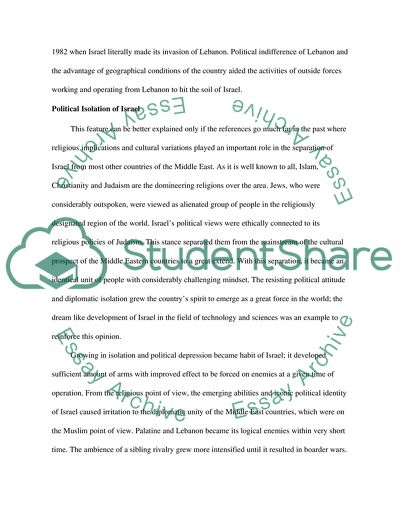Cite this document
(Israels Lebanon Invasion Of 1982 Case Study Example | Topics and Well Written Essays - 2500 words, n.d.)
Israels Lebanon Invasion Of 1982 Case Study Example | Topics and Well Written Essays - 2500 words. Retrieved from https://studentshare.org/politics/1744998-why-israel-invaded-lebanon-in-1982
Israels Lebanon Invasion Of 1982 Case Study Example | Topics and Well Written Essays - 2500 words. Retrieved from https://studentshare.org/politics/1744998-why-israel-invaded-lebanon-in-1982
(Israels Lebanon Invasion Of 1982 Case Study Example | Topics and Well Written Essays - 2500 Words)
Israels Lebanon Invasion Of 1982 Case Study Example | Topics and Well Written Essays - 2500 Words. https://studentshare.org/politics/1744998-why-israel-invaded-lebanon-in-1982.
Israels Lebanon Invasion Of 1982 Case Study Example | Topics and Well Written Essays - 2500 Words. https://studentshare.org/politics/1744998-why-israel-invaded-lebanon-in-1982.
“Israels Lebanon Invasion Of 1982 Case Study Example | Topics and Well Written Essays - 2500 Words”, n.d. https://studentshare.org/politics/1744998-why-israel-invaded-lebanon-in-1982.


